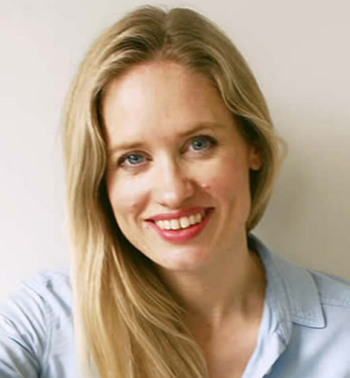22 April 2025
What is your role within King’s Health Partners?
I am a consultant in clinical genetics working across sites at Guy’s Hospital, St Thomas’ Hospital, and Great Ormond Street Hospital. I have a specialist interest in rare obesity syndromes, in particular a rare genetic condition called Bardet-Biedl syndrome.
I also run clinical trials and am running one of the first treatment clinics for a rare disease treating people with Bardet-Biedl syndrome with a new drug that helps with intractable hyperphagia and obesity. Recently, I have started working in the national clinic for another rare genetic condition called Cockayne syndrome.
What do you enjoy most about your role?
It is the people! It is a wonderful privilege to get to know my patients, and I have heard some incredible life stories. So many of my patients face significant health challenges and still manage to make the best of life and achieve some extraordinary things. I really enjoy working in multidisciplinary teams and with patient support groups; everyone brings their own perspective, and I am always learning something new.
What inspired you to get into this work?
I wanted to work in a specialty where I get time with patients and where I am always learning. Clinical Genetics definitely delivers - it has evolved enormously in the last 15-20 years. When I first started out we would test one gene at a time. Now we are able to test many thousands of genes simultaneously, and as a result, we are delivering diagnoses for many more people. There are some amazing new therapies changing the lives of people with rare diseases for the better and many potential therapies on the horizon.
How does your work impact the lives of patients?
For many people who come to clinical genetics getting a diagnosis marks the beginning of a new chapter in their life. Most of my patients have waited for many years to get a diagnosis. Understanding why they have faced their specific challenges is understandably a great relief for many people. Getting a diagnosis usually makes it easier to get any support that is required, and for some, it means that they are a step closer to potential treatments.
What are the benefits of working in partnership?
The wealth of people who work in the trust as clinicians or academics is an absolute goldmine when you work in rare diseases.
In genetics we see many people with extremely rare diseases and sometimes we see people with a new syndrome that we have never seen before. Collaborating with experienced clinicans in other fields and academics who are experts in specific aspects of a person’s rare genetic disorder means that we can offer excellent care.
What would be your one career top tip?
Don’t be afraid to pivot and think outside the box. When I first started in genetics new therapies were not on the agenda, now I view it as the future of clinical genetics. It is such a privilege to play a part in this watershed moment where we are offering treatments to more and more people living with rare diseases.





